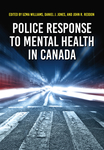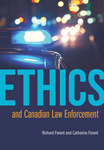We don’t actively support Internet Explorer
It appears that you are using Internet Explorer, which has been discontinued by Microsoft. Support has ended for versions older than 11, and as a result you may face security issues and other problems when using it.
We recommend upgrading to a newer browser such as Firefox, Google Chrome, or Edge for a much better experience across the web.
While this site may work with Explorer, we are not testing and verifying it, so you may run into some trouble or strange looking things.
Overview
Written for the Canadian forensic science student and the professional practitioner, this timely and practical handbook provides an experience-based learning tool. This text offers an understanding of scientific method and evidence-based analysis and how they relate to forensic science and its casework—from the crime scene to the courtroom—within the Canadian context. The authors explore the paradigm shift in forensic science, highlight basic skills like scientific reasoning and literature review, and untangle the complexities of ethics and bias, research design, critical thinking, and best practices for communication in various settings. Case examples and court testimonies are reviewed to underscore the importance of these concepts.
By blending real-life examples with scientific concepts like validation, peer review, accountability, and transparency, The Scientific Method in Forensic Science is a fundamental read for students in introductory forensics, criminology, police studies, and anthropology.
FEATURES
- includes questions for critical thinking, suggestions for further reading, a glossary, and additional instructional popouts
- provides an experience-based learning opportunity for understanding the scientific method
- utilizes case studies and court transcripts to illustrate practical applications in a Canadian context
Table of Contents
Foreword, Hélène LeBlanc
Preface, Mike Illes
Chapter 1: Introduction: The Paradigm Shift in Forensic Science
Chapter 2: Concepts of Science and the Scientific Method
Chapter 3: Critical Thinking in Forensic Science
Chapter 4: How to Critically Review a Published Journal Article
Chapter 5: What the Literature Says: From Student to Expert
Chapter 6: The Use, Misuse, and Absence of Statistics in Forensic Science Casework
Chapter 7: Research Design for the Forensic Science Student and Practitioner
Chapter 8: The Importance of Ethics and Impartiality in Forensic Science
Chapter 9: The Key to Effective Communication in Forensic Science
Appendix: Exercise Answers
Index





